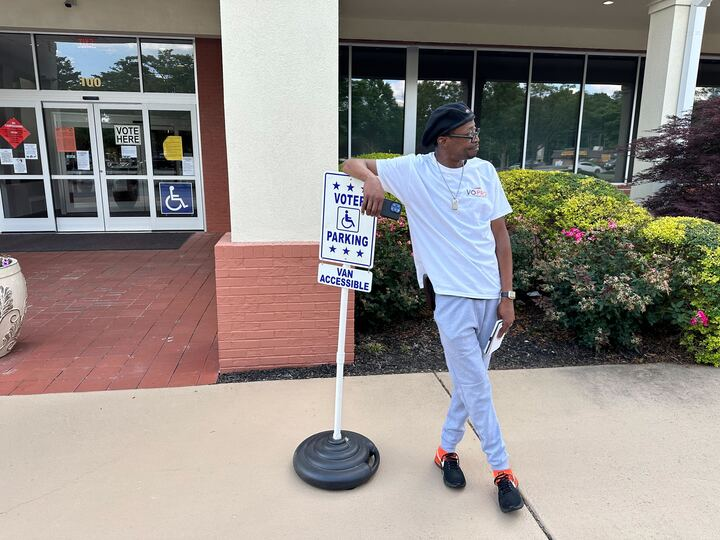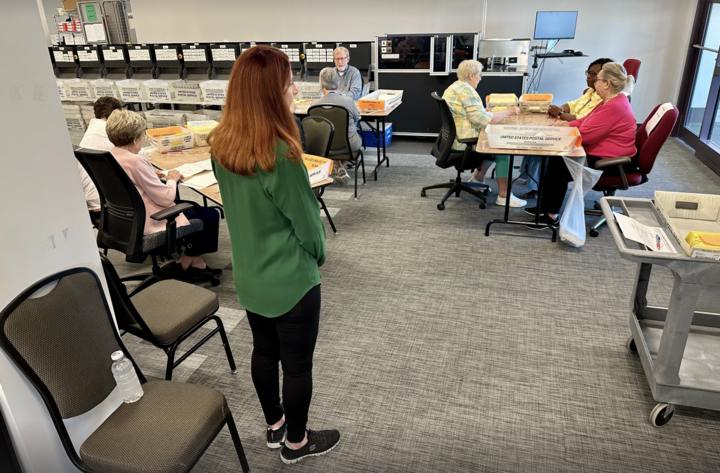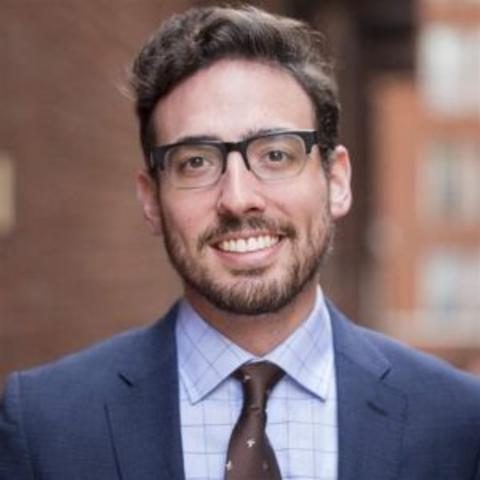
Caption
Lamont Hart, a voter protection volunteer for the New Georgia Project, waits to speak with voters outside the Cobb County Senior Wellness Center in Marietta, Ga. He was one of many election monitors during May’s primary.
Credit: Matt Vasilogambros/Stateline



